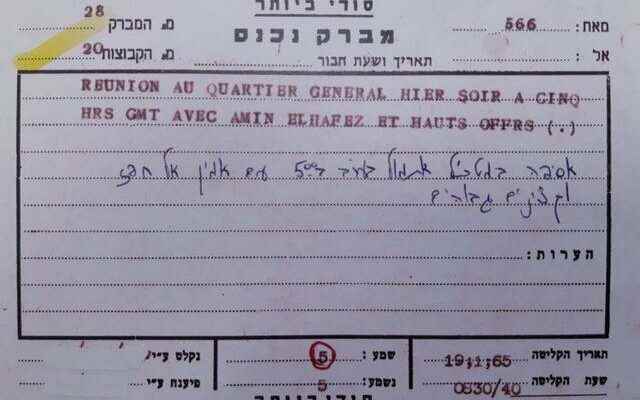In a written statement made by the Israeli government’s media office, Cohen’s telegram dated February 19, 1965 to the Israeli authorities and the Israeli Foreign Intelligence Service (Mossad) Head David Barnea’s assessment of the event were shared.
MOSSAD PRESIDENT ANNOUNCED
In his last telegram, it was noted that Cohen had informed the Israeli authorities that he had attended a meeting of senior officers, including Syrian President Amin al-Hafiz, at the General Staff the previous evening. “Cohen was caught because the enemy was intercepting their messages, not because there was too much texting or because the center constantly wanted to send information,” Barnea said. used the phrases.
Stating that they will continue to share information about Cohen’s period in Syria, Barnea stated that they will work to bring the remains of Cohen, who was executed in Syria, to Israel and be buried.
“Eli Cohen was one of our best agents. Even from the depths of history, he continues to impress us, instilling fighting spirit, courage and commitment. He is an inspiration not just to agents of today, but to the entire Mossad,” said Mossad Chairman David Barnea.
LIFE HAS BEEN A SERIES ON NETFLIX
Eli Cohen, considered one of Israel’s most important spies, served in the Syrian capital Damascus between 1962 and 1965 under the pseudonym Kemal Emin Sabit.
Cohen, who developed close relations with the top Syrian military officials and transferred the information he gathered about the military activities in the Golan Heights and the state decision-making mechanism to Israel, was executed on May 18, 1965.

Cohen’s life, which was the subject of the 2019 series “The Spy” by the global internet television network Netflix, has also taken a place in popular culture. (AA)
